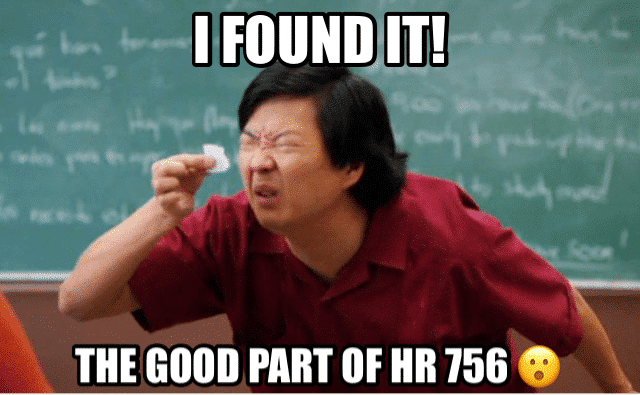Postal Service Reform Act of 2017
TITLE I–POSTAL SERVICE BENEFITS REFORM
This bill requires the Office of Personnel Management (OPM) to establish a Postal Service Health Benefits Program within the Federal Employees Health Benefits Program to offer health benefits plans for U.S. Postal Service (USPS) employees, annuitant retirees, and their families at rates that reflect the cost of benefits provided solely to the USPS risk pool. Medicare-eligible postal retirees and family members are automatically enrolled in part A (Hospital Insurance) and part B (Supplementary Medical Insurance Benefits for Aged and Disabled) of title XVIII (Medicare) of the Social Security Act. Each plan must provide Medicare part D (Voluntary Prescription Drug Benefit Program) prescription drug benefits through an employer group waiver plan.
Postal retirees not previously enrolled in Medicare will be transitioned automatically into Medicare part B.
The USPS’s annual prefunding payments to the Postal Service Retiree Health Benefits Fund must be recomputed each year based on economic and actuarial methods to liquidate 100% of the USPS’s actuarial liability by September 30, 2055. The bill modifies the prefunding schedule established under the Postal Accountability and Enhancement Act.
The OPM must use postal-specific demographic and economic assumptions in its valuations of the USPS’s Civil Service Retirement System (CSRS) and Federal Employees Retirement System (FERS) pension accounts. Under CSRS and FERS, any projected USPS funding surpluses shall be returned to the USPS through amortized annual installments.
TITLE II–POSTAL SERVICE OPERATIONS REFORM
This title reduces from nine to five the number of governors serving on the USPS Board of Governors with the Postmaster General and the Deputy Postmaster General. The USPS’s power shall be vested in the governors and carried out by the Postmaster General consistent with the strategic direction and pricing and product strategy approved by the governors. The Postmaster General may delegate authority, but the bill removes the board’s authority to delegate authority to the Postmaster General.
The USPS must transfer funds to the Department of State to coordinate and negotiate international postal rates and delivery services.
The USPS must provide mail delivery other than door delivery (with a preference for centralized delivery) for new delivery points unless a new delivery point is built or established within a block of existing primarily door delivery points. It must also begin converting to centralized delivery, curbside delivery, or sidewalk delivery for existing: (1) business delivery points, and (2) residential delivery points with postal patrons’ consent.
This title: (1) revises the Postal Regulatory Commission’s (PRC’s) standards for establishing or revising rates or classifications for first-class mail, standard mail, or other market-dominant products; (2) repeals a rate preference that currently allows certain political committees to send third-class mail at the nonprofit organization rate; and (3) increases by 1 cent the postage rate for first-class stamps by reinstating 50% of the exigent rate surcharge for first-class mail and other market-dominant products that was in effect on April 9, 2016.
The USPS may establish a program to provide property and services on behalf of state, local, or tribal governments for noncommercial products and services, and a program to provide property and services to other executive agencies and the Government Publishing Office, but only if such property and services provide a reasonable contribution to the institutional costs of the USPS.
In determining whether to close or consolidate a post office, the USPS must: (1) consider the availability of broadband Internet service and commercial mobile service in a geographic area, and (2) conduct a nonbinding survey to allow postal patrons to indicate their preferences among alternative postal service options.
The USPS is prohibited from offering postage-evidencing products or services that do not comply with regulations applicable to private companies.
The PRC must complete the initial review of the system for regulating rates and classes for market-dominant products such that a final rule for a revised or reapproved system is issued by May 1, 2018.
TITLE III–POSTAL SERVICE PERSONNEL
A Chief Innovation Officer is established to: (1) maximize USPS revenues, (2) utilize emerging information technologies, and (3) update an innovation strategy for postal and nonpostal products and services.
The President must appoint an Inspector General of the Postal Community to consolidate the currently separate USPS and PRC inspectors general.
The right to appeal adverse personnel actions to the Merit Systems Protection Board is extended to USPS or inspector general employees who are not represented by a bargaining representative.
TITLE IV–POSTAL CONTRACTING REFORM
The USPS and the PRC must: (1) issue policies on contracting officer delegations of authority for postal contracts, (2) publish noncompetitive contract awards that exceed specified dollar amounts, (3) require contracting officers and decision-makers to disclose personal and business relationships that would cause questions regarding their impartiality, and (4) establish procedures for the ethics counsel to review conflict of interest disclosures to determine whether a contracting officer’s participation would violate ethical conduct standards.
The USPS or the PRC may void postal contracts if: (1) there is a criminal conviction (from which no further appeal may be taken) for bribery or a conflict of interest relating to the contract, or (2) the contractor fails to make required disclosures.
Audio of Summary



Union and NAME of Local/Branch
Ernest Johnson
Office held, if any
Oakland Local #78 Retiree Chapter President
These darn crooks are up to no good and anybody in agreement with such crap should be the first one in the said plan.
There’s some wondering what we can do to eradicate violence, it is no fun when the rabbit got the “GUN”!
Now go back to the Hill and straighten this mess out before God shares some real harm to someone not in need of.
Bad, Bad weather in unfamiliar places and hate brewing over at City Halls and no voices opposing the wrong. Somebody needs to atone for all of these wrongs, not everybody jump, but when?